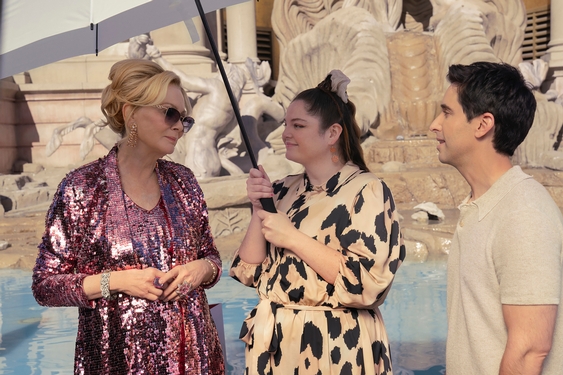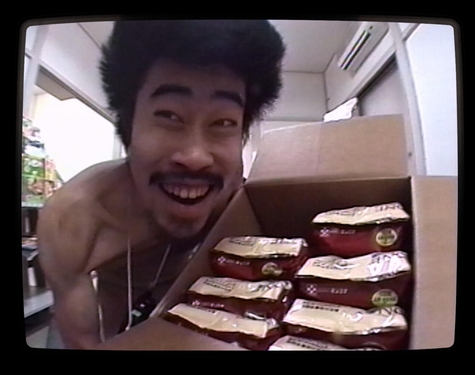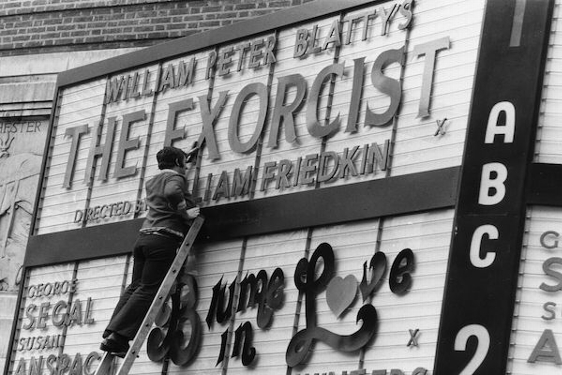I’ve been pondering the appeal of heist stories lately, with the return of “Leverage,” now starring Noah Wyle and streaming on IMDb TV. The show’s breezy way around a caper prompted me to revisit the similarly minded British series “Hustle” (all eight seasons are on Amazon Prime) and what they have in common is an overall ethos: Let’s target the greedy and the terrible in an effort to mete out some off-the-books justice.
Things are more complicated in real life. Large-scale robberies aren’t usually undertaken to right karmic wrongs, but because people are motivated by more personal and immediate concerns. Sometimes it’s as simple as: The opportunity presented itself.
Over the course of six episodes (each 40 minutes apiece), the true crime Netflix docuseries “Heist” centers its focus on three major inside jobs. The participants featured were eventually caught and they served time. Now they’re here to tell their story (presumably for a fee paid by the show’s producers). The show’s format takes the form of actor reenactments interspersed with present-day interviews with the real people involved — or so you’re led to believe.
“Real” turns out not to be true, at least in one case. It’s only at the very end of the two episodes focused on Heather Tallchief — who took part in the 1993 theft of millions from an armored truck in Las Vegas — that we learn, via vague wording splashed across the screen, that we haven’t been watching Tallchief narrate her own story at all: “Due to the ongoing investigation into Roberto Solis (her accomplice), Heather chose to remain anonymous for her safety. Her interview was recreated word-for-word by an actress.”
This rationalization raises more questions than it answers. Tallchief lived as a fugitive for 12 years in Amsterdam under a false name. But in 2005, she turned herself in and, notably, spoke to the media. Footage and images of her are already out there. Is she currently living under her real name? A fair question that goes unanswered. Here’s another omission: Tallchief became pregnant by Solis shortly after they absconded with the money. The relationship ended before she gave birth, and she raised the child alone. That son, now a young adult, is interviewed here. Presumably it’s really him and not an actor, but it makes you wonder why there are no concerns about his safety.
None of this makes any sense and the show’s production company Dirty Robber and director Derek Doneen glide right over all of it, emulating their subject’s dishonesty: You, the viewer, have become the mark. If this seems relatively harmless — you’ve been swindled out of nothing more than 80 minutes worth of your good faith — it’s worth thinking about this in a larger sense, because playing fast and loose with the truth has a way of undermining the entire series. I didn’t trust anything I saw on screen after that.
Still, it’s fascinating viewing, if a relatively inelegant format. It bears similarities to the NatGeo series about travelers caught smuggling drugs internationally, but the tone of “Locked Up Abroad” has always been tinged with regret; the people at the center of each episode understand their profound errors in judgment in hindsight. That’s true of “Heist” as well, but the show really wants to have its cake and eat it too, layering in a soundtrack of swinging brass as if were an episode of the fictional “Hustle,” rather than a real-life story that left the family of those involved feeling deeply confused and hurt. That pain, still raw after so many years have passed, may be the show’s strongest insight.
“Heist” also focuses on the massive theft of expensive bourbon in Kentucky in 2013, a crime dubbed Pappygate in a nod to brand of bourbon in question, Pappy Van Winkle. It’s not only the story of Gilbert “Toby” Curtsinger, a former distillery employee who describes himself as “the kind of guy that you knew could get stuff,” but also of a publicity-seeking sheriff of the small town of Frankfort.
The show also spotlights the robbery of more than $7 million stolen from Miami International Airport in 2005. The heist was organized by Karls Monzon, who was clearly underestimated by those who knew him. His planning was meticulous but his choice of co-conspirators was not and that’s when things spiraled violently out of control.
It’s impossible to watch the series and not think about the many one-percenters who get away with worse. The Wall Street bankers and executives who went unprosecuted and unpunished in the wake of the 2008 financial crisis. Or the recent investigation by ProPublica that found the nation’s billionaires sometimes pay zero federal income taxes, availing themselves of “tax-avoidance strategies beyond the reach of ordinary people.” A heist by any other name is still a heist in spirit.
The big score is almost always a mirage, but it’s a fantasy that endures because there’s something so satisfying about the promise of getting one over on an unfair system and powerful entities who, when given the chance, exploit us without a second thought.
———
'HEIST'
2.5 stars (out of 4)
Where to watch: Premiered Wednesday on Netflix
———
©2021 Chicago Tribune. Visit chicagotribune.com. Distributed by Tribune Content Agency, LLC.












